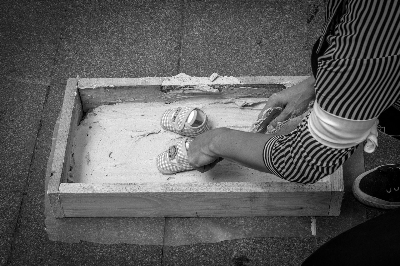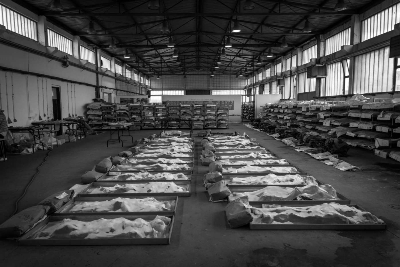
©
Напередодні Дня білої пов'язки, що відзначається щороку 31 травня, пережилі злочини в Прієдорі та правозахисники знову закликають міжнародну спільноту визнати масові переслідування і вбивства боснійських мусульман та хорватів у 1992 році актом геноциду. День білої пов'язки був запроваджений на згадку про розпорядження боснійських сербських сил, які 31 травня 1992 року наказали всім несербам у Прієдорі вдягнути білі пов'язки на рукави та позначити свої будинки білими простирадлами — символічний початок масових арештів, катувань і вбивств. За даними правозахисників, близько 3 000 мирних жителів, зокрема 102 дитини, були вбиті в регіоні Прієдора. Тисячі осіб пройшли через сербські табори утримання, зокрема Омаську, Манячу, Кератерм і Трнопольє. Один із колишніх в’язнів, Джемал Паратущич, каже, що досі бачить колишніх охоронців на вулицях міста: «Це страшно повертатися туди, де все заперечують — і сам геноцид, і власну відповідальність». Аджла Кудузович, співзасновниця швейцарської організації «Комісія білих пов’язок», наголошує, що злочини у Прієдорі були не менш системними й руйнівними, ніж у Сребрениці, але їх ігнорують через брак централізованої документації та політичне небажання визнавати ширші масштаби злочинів. Місцева влада в Прієдорі, що належить до боснійсько-сербської Республіки Сербської, досі відмовляє в дозволі на встановлення пам’ятника дітям-жертвам. Більше того, щороку напередодні Дня білої пов’язки там влаштовують власні заходи, зокрема вшанування «захисників міста» під час війни.
White Armband Day in Prijedor: Victims Demand 1992 Crimes Be Recognised as Genocide
Ahead of White Armband Day, commemorated annually on May 31, survivors of the 1992 atrocities in Prijedor and human rights advocates are once again urging the international community to recognise the mass persecution and killings of Bosniak Muslims and Croats as an act of genocide. White Armband Day marks the order issued by Bosnian Serb forces on May 31, 1992, requiring all non-Serbs in Prijedor to wear white armbands and to mark their homes with white sheets – a symbolic beginning of a brutal campaign of mass arrests, torture, and killings. According to human rights organisations, around 3,000 civilians – including 102 children – were killed in the Prijedor region. Thousands more were detained in Serb-run camps, such as Omarska, Manjača, Keraterm, and Trnopolje. Džemal Paratušić, a former detainee, says he still sees his former camp guards walking freely through the town: “It’s terrifying to return to a place where everything is denied – the genocide itself and any responsibility.” Ajla Kuduzović, co-founder of the Swiss-based NGO White Armband Commission, stresses that the crimes committed in Prijedor were just as systematic and devastating as those in Srebrenica. However, they remain under-recognised, due to a lack of centralised documentation and the political reluctance to acknowledge the broader scale of atrocities. The local authorities in Prijedor, part of the Bosnian Serb entity Republika Srpska, have repeatedly refused to grant permission for a memorial dedicated to the children who were killed. In fact, every year on the eve of White Armband Day, they organise their own commemorations, including tributes to those they describe as “defenders of the city” during the war.

©
1817